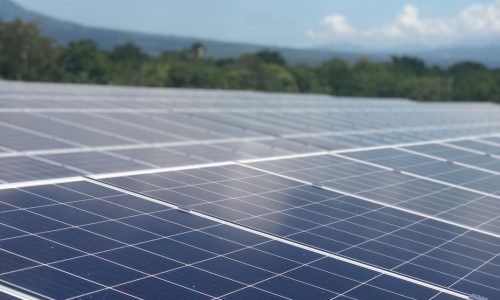Mining company PT Trimegah Bangun Persada Tbk (NCKL), also known as Harita Nickel, is exploring opportunities to export nickel sulfate to other Asian markets after making successful export to China.
5,000 tons export to China
An affiliated entity of NCKL, PT Halmahera Persada Lygend (HPL), recently made its first-ever export of 5,584 tons of nickel sulfate to China.
NCKL’s CEO, Roy A. Arfandy, stated that China is an attractive export destination due to the presence of many electric vehicle battery manufacturers.
“The largest battery manufacturers in the world are mostly in China, which is why most of our products are exported there,” said Roy in Jakarta, as quoted on Thursday (29/6/2023).
Exploring Korea and Japan
Currently, they are exploring the possibility of exporting nickel sulfate to other countries such as Korea and Japan.
“We are considering the export potential to other countries, such as electric vehicle battery manufacturers in Korea or Japan. We will certainly seize the opportunity to sell or export there,” Roy said.
Regarding the domestic market, Roy mentioned that there are no cathode and precursor factories in the country. “There are no buyers domestically, that’s why we export,” said Roy.
Adapting to market demands
He also emphasized that NCKL doesn’t have to exclusively produce nickel sulfate. The company has the flexibility to adapt to market demands. If it turns out that the market for Mixed Nickel-Cobalt Hydroxide Precipitate (MHP) is more promising, the conversion of nickel sulfate will be reduced.
Nickel sulfate is an essential element in the production of precursor cathodes for electric vehicle batteries and is derived from further refining of MHP.
“We have flexibility here because we produce MHP from nickel ore. MHP can be converted into nickel sulfate and cobalt sulfate,” said Roy.
“We will see if the nickel sulfate market is better than MHP. We will convert more MHP into nickel sulfate. If MHP has a better price in the market, we will convert less. So, we are flexible,” he added.
240,000 tons export target set
Roy couldn’t provide an exact figure for the amount of MHP to be converted into nickel sulfate this year, although he previously mentioned that the company aimed to export 240,000 tons of nickel sulfate annually.
“It depends on market conditions. That’s one of our advantages, being able to flexibly respond to the market. We adjust our movements depending on the existing market conditions,” he explained.









